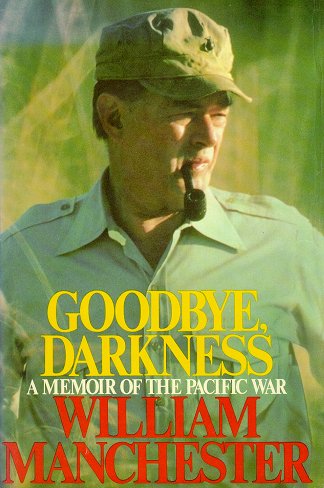
Historian and Kennedy Biographer William Manchester dies at 82: "Goodbye Darkness" was personal history of the courage of ordinary men who were put in extraordinary circumstances
Few books moved me like this one. William Manchester has always been one of my favorite biographers writing such magnificent books as The Arms of Krupp, American Caesar, and The Last Lion. But Goodbye Darkness is an intensely personal look at his own life as a soldier fighting in the brutal battle of Okinawa during World War Two. As the title suggest, this book is an attempt by a aging man to come to grips with the brutality and the deeds of his youth. More than a personal biography, Manchester weaves the whole Pacific Campaign into his story, we learn of the terror of Guadalcanal, the bravery of the Marines at Tarawa, and the courage of ordinary men who were put in extraordinary circumstances. It is an intensely personal story as we get to know a young Manchester and his Raggedy Ass Marines. We see how friendships were man, mistakes were made and lives were lost. It is a magnificent book.
Manchester comes to grips with the ferocity of his enemy, the Japanese solider. One can sense both a sense of admiration and enmity as Manchester talks about those he fought so long ago. Underlying this hate is the seed of racism as seen in the Japanese who took no prisoners to the Marines who mounted the severed heads of their enemy on their tanks. It was brutal. Both sides saw the other as inferior human beings; thus, it was killed or be killed with very few prisoners taken. Yet, the reader senses Manchester admiration of his enemy, the courage of the Japanese solider who fought with interior weapons, weakened by disease and who was often on the verge of starvation. In the end, however, the authors observes, We were better soldiers.
I have read this book three, maybe four times over the years, and I am due to read it again. It is that good.
